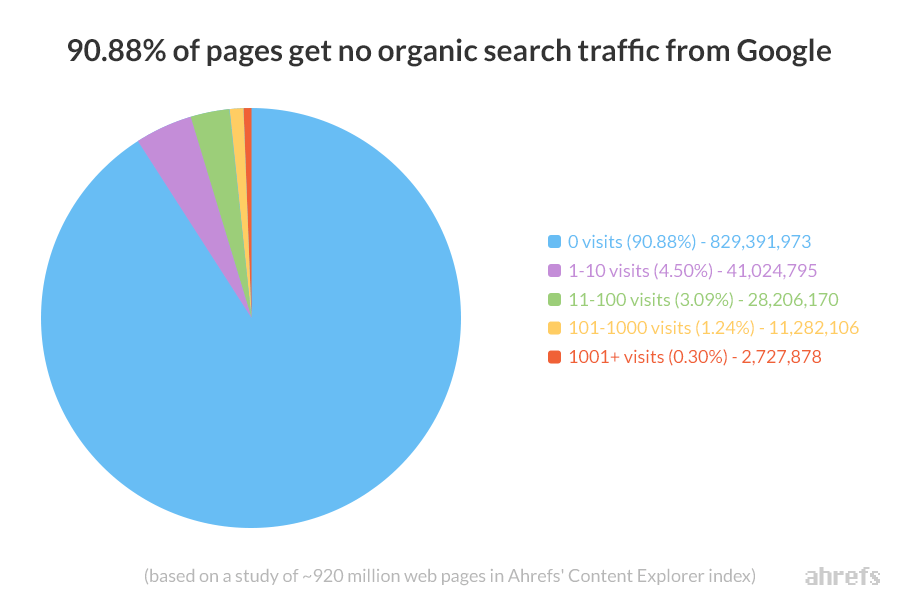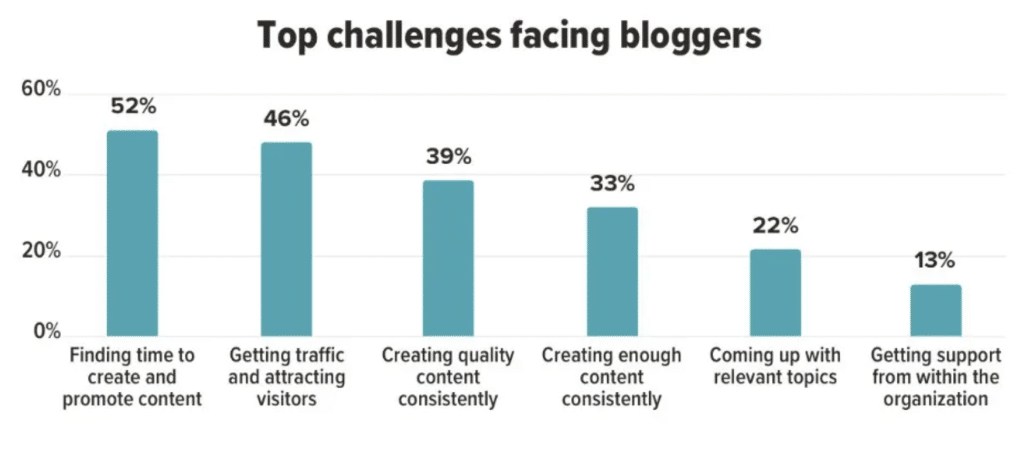
Content Writing is the New Copywriting
Step into the ring where the titans of text battle for the crown of audience engagement: copywriting vs. content writing.
At Marketing Insider Group, we’ve been front-row spectators and active participants in this evolution, witnessing first hand how the landscape of digital communication transforms.
Gone are the days of one-size-fits-all marketing messages. Today, it’s a nuanced game of chess where every move is about striking the perfect balance between persuasion and information.
As we dive into the heart of copywriting vs. content-writing, we’ll share insights on mastering this delicate dance, ensuring your message not only lands, but also hits the mark. Creating content that engages is about making connections that last through stores that not only speak to your audience, but also speak for them.
Quick Takeaways
- The transition from traditional advertising roles to content-focused positions reflects the industry’s shift towards content marketing.
- SEO and content writing work together to ensure content not only engages but also ranks well on search engines, driving traffic.
- The challenge today is creating content that stands out in a sea of information without sacrificing quality for quantity.
- Effective content resonates with audiences through genuine expression, creativity, and avoiding jargon, making it relatable and enjoyable.
The Evolution of Copywriting vs. Content Writing
At some point in time, the terms advertising agencies and copywriters became content agencies and content creators, respectively. As if by formal edict of the American Advertising Federation or the Association of National Advertisers, the art of copywriting for advertising became content for content marketing.
For copywriters, this meant a quick resume update. Simply find the words copywriter, writing, etc. and replace with content creator, content strategist, content, etc. It was just a quick nomenclature change. But it was much more than that for the industry, of course. This shift took place for good reason. The industry has changed. If you’re old enough to remember the original definition of copywriting, you understand why.
Copywriting was ad copy, written and sized to fit the space available in any medium, most notably print, TV, radio and billboards.

Image Source: Weddingbee Boards
That doesn’t sound like today’s advertising and marketing environment at all, does it? What we have today is a multi-stage, buyer journey landscape where content creation for demand generation and lead nurturing rule. Copywriting in the traditional sense isn’t really happening that much. Writing? It’s happening more than ever, but we don’t call it writing marketing since content covers a larger spectrum of deliverables.
Today’s emphasis on content creation and all the writing that goes along with it comes with potential pitfalls, primarily in the form of quantity over quality.
Content Writing and SEO
You’ve heard the saying that ‘content is king’, right? Well, it’s true. But not just any content—content that ranks.
You see, SEO and content writing go together like peanut butter and jelly. It’s a classic combo that delivers results, especially when you’re aiming to climb the Google ladder.
But let’s get real for a second. Did you know that over 90% of web pages get zero traffic from Google? That’s right, zero, zilch, nada. It’s like throwing a party and nobody shows up. But why is this happening?

Image Source: Media Makers Meet
It’s often because these pages aren’t optimized for SEO. They’re missing out on the party invites to Google’s first page. And let’s be honest, that’s where the real party is at.
So, how do we at Marketing Insider Group make sure our content isn’t just sitting on the sidelines?
- We focus on what our audience is actually searching for. It’s not rocket science; it’s about getting into our audience’s shoes and understanding their pain points, questions, and what they’re curious about.
- We craft content that’s not just informative, but also engaging. We’re talking about content that answers questions, solves problems, and maybe even makes you chuckle. Because let’s face it, we could all use a laugh, especially when sifting through the endless sea of online information.
But here’s our real secret: We don’t just stuff our articles with keywords and call it a day. Instead, we make sure our content is easy to read, with headings, subheadings, and yes, those all-important keywords woven in naturally. It’s like seasoning a dish—you want it to enhance the flavor, not overpower it.
And remember, Google loves fresh content. So, we keep our site updated with the latest and greatest, ensuring our audience and Google keep coming back for more.
In a nutshell, content writing and SEO are the dynamic duo behind any successful online presence. At Marketing Insider Group, we’ve mastered this art, ensuring our content not only resonates with our audience, but also ranks well on Google. Because at the end of the day, what’s the point of creating great content if no one can find it?
With Great Content Comes Great Responsibility
According to Orbit Media, more than half of bloggers struggle to find time to create and promote content.

Image Source: Orbit Media
So, what happens? As a writer colleague of mine likes to say, Sturgeon’s Law begins to take effect. That is, 90% of content becomes schlock. If we don’t have time, we resort to rules, shortcuts and tricks intended to lessen the required effort. Unfortunately, these same steps can inadvertently diminish the quality of content.
Messaging guides
I’ve seen good ones and bad ones, but both are fodder for abuse by lazy or time-strapped content creators. Agencies and corporate marketing groups publish these guides with the noble intent of ensuring consistency. Content creators too often copy/paste this good work straight into their “original” pieces without appropriate attention to the audience or media.
The guide’s “corporate voice,” with its lovely, consistent use of third person, passive voice and over-use of the word solutions bleeds into everything, rendering new content somewhere between uninteresting and unreadable — so it won’t engage.
Bullets
We don’t give readers the benefit of the doubt that IF we write a compelling story or message, they’ll invest beyond a quick scan of the bullets. In our under-resourced world, content creators often don’t have time to employ their skills and imagination to create strong headlines, sub-heads and colorful storytelling that draws readers in. Instead, we use bullets to make sure readers see the key points.
Repurposing to a fault
Repurposing content is a key tenet to good content marketing. A great Ebook should have a life of its own in a variety of media and maximizing our miles-per-content is smart.
But be careful not to take it to extremes. Often, you’ll see:
- Messaging guide content that becomes the brochure copy that turns into email copy
- Email messages that become social media posts
- White papers that are brochures in disguise
- Ad copy that pulls from website pages
- Blogs that repeat brochure content
It’s quick. It feels consistent. It produces the requisite volume. But readers can’t find a reason to engage. The message doesn’t change or evolve and ultimately, you sound and feel like a dispassionate company without a great story.
How to Write Meaningful Content
So, what makes good content writing?
Video Source: Matt D’Avella
Here are seven of our secrets:
1. Embrace the Freedom of Expression
Lighten up on the rules! Give your content creators some room to operate and the freedom to express an idea in a tone includes some individualism.
Audiences read when they find content interesting. Authors who express their ideas with a tone and enthusiasm that are exciting will generate engagement. Make sure your content and messaging guides include adequate breathing room for expression.
2. Fresh Takes at Every Turn
Evolve, don’t repeat. Ideally, every content instance at every stage of the demand generation or nurturing process should feel fresh and new — a new chapter in an evolving story that grows without being redundant.
3. Crafting Stories, Not Just Content
Follow good writing practices. Creating great content requires the right talent: creators (writers) who understand the rules of good writing. They use accessible tones, on-target messages, compelling examples and enthusiasm to keep readers engaged.
Great content is just long enough without overwhelming, so the writer must have full command of the subject matter to understand what matters most. Great writing should feel like a great story because readers love stories.
4. Speak Your Audience’s Language
Avoid industry jargon. You’re not in a board meeting.
At Marketing Insider Group, we like to keep it simple. If it sounds like something out of a corporate handbook, we scrap it.
Our advice is to write as if you’re explaining it to a friend over coffee. This way, we make sure our content is not just understood, but also enjoyed. Because at the end of the day, the real magic happens when your message isn’t just received, but felt.
5. Unleash Your Creative Genius
Use your imagination, seriously! From the beginning of advertising, great copywriting always included a lot of creativity; so should your content. Headlines capture imaginations and pull readers in. A surprising but relevant anecdote or example will help readers relate and see themselves as part of the story.
6. Lighten Up The Mood
Use humor. Your big, impressive white paper can include a lively writing style and a little humor, even for the most technical and detailed topics.
After all, who said professionals can’t be fun? Injecting a bit of wit not only makes your content more engaging, but also helps complex information stick. A chuckle or a smile can be the secret ingredient that transforms your white paper from a simple read to a memorable experience.
7. Visuals That Captivate and Connect
Integrate visuals. There’s nothing better than a surprising visual that makes a connection, something incongruous to garner attention and entice the audience to take the next step and consume more of your story.
Master Content Writing Today with Marketing Insider Group
In the world of copywriting vs. content writing, we’ve seen a big shift. It’s no longer just about catchy slogans; it’s about creating content that educates, entertains, and ranks on Google.
We blend persuasive copy with informative content to strike the perfect balance, ensuring our stories not only resonate, but also get found. In this new era, authenticity, value, and a touch of cleverness are key to capturing and keeping our audience’s attention.
Ready to master the art of content writing? Check out our SEO Blog Writing Service or schedule a quick consultation to learn more about how Marketing Insider Group can help you earn more leads for your business.






